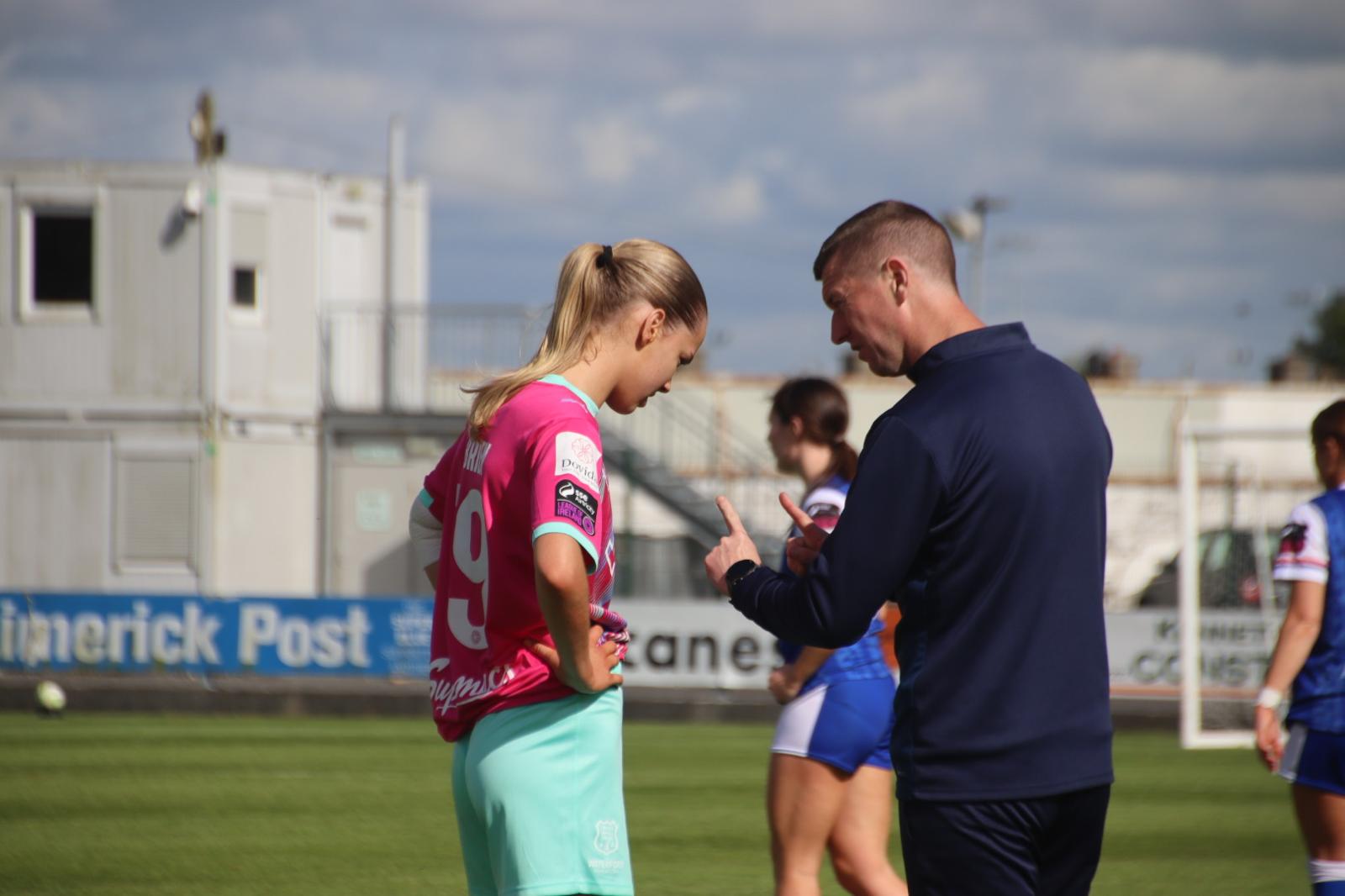In the world of sports, coaches play a pivotal role not only in developing athletes’ skills but also in shaping their personal development and character. Gary Hunt, the head coach of Waterford FC Women’s team, shares his insights on how coaches can influence their athletes beyond the sport itself. This article explores the impact of a coach’s behaviour and values on ethical decision-making, balancing the pressure to win with teaching integrity and respect, and the qualities that make a coach a positive role model.
How Does a Coach’s Behaviour and Values Impact the Ethical Decisions Made by Their Athletes?
The coach is at the forefront of everything the team represents. When a coach instills their philosophy into the group, the team becomes a reflection of the coach. Gary Hunt believes in developing the person as well as the footballer, which comes with the responsibility to ensure that players make good decisions that impact both their performance on the pitch and their conduct off the pitch.
To achieve this, it is crucial for coaches to practice the values they preach. For example, in a competitive environment, Gary emphasises the importance of handling oneself appropriately when decisions seem to go against the team. He stands up for his team when necessary but does so in a manner that reflects patience and respect. This behaviour sets a positive example for the players, influencing their ethical decisions both on and off the pitch. Negative behaviour from coaches can shape athletes in undesirable ways, highlighting the importance of ethical conduct in coaching.
How Can Coaches Balance the Pressure to Win with the Responsibility to Teach Integrity and Respect?
In first-team football, there is a shift from development-focused environments to result-based ones. Despite the external judgment based on results, Gary Hunt stresses the importance of focusing on individual and collective development. As a developing coach, he always aimed to win the ‘right way,’ but as he progressed into the result-driven business of first-team football, he learned to balance both objectives.
A win-at-all-costs mentality offers short-term benefits but does not align with Gary’s values. Winning the ‘right way’ can be vague, but it encompasses playing with integrity and respect. Gary encourages his players to push boundaries within the rules, avoiding cheating or disrespecting opponents and officials. Examples include conceding a tactical foul at the right time or slowing down the game strategically. However, he is clear that these actions should not compromise player welfare.
Gary emphasises the importance of being competitive athletes during the game while maintaining respect and sportsmanship afterward, regardless of the result. This approach fosters a culture of integrity and respect within the team.
How Might a Coach’s Words or Actions Influence How an Athlete Handles Adversity or Failure?
When adversity or failure occurs, it is a great opportunity for the coach to instill growth within the group. The saying “you win or you learn” is something a good coach can use in times of difficulty. Gary makes a conscious effort with his behaviour and language during challenging times, as these moments require direction and leadership. The coach’s actions and words can inspire or redirect athletes, helping them handle adversity positively.
The coach’s behaviour sets the norms for acceptable conduct, influencing how athletes carry themselves away from the group. This includes social media posts, media interviews, and more. Gary hopes that his players will exhibit the qualities instilled within the group even in times of adversity or failure.
Can Poor Coaching Damage an Athlete’s Character or Personal Growth? How?
Coaching involves many facets, and qualifications are just a small part of it. Personality plays a huge role in how a coach conveys their message and unites the group. Poor coaching can stunt the growth of players both developmentally and personally. Enthusiasm is important, but it should not come at the cost of losing the ability to teach. Infectious energy can engage players, allowing the coach to help them improve.
Every person learns differently, and it can be challenging for coaches to recognise and implement various learning styles within limited contact time. Teaching new skills requires specifics and instilling confidence in players to try them. Taking players out of their comfort zone helps them thrive outside of sports, as these life skills are transferable. Failure to achieve this can negatively affect athletes on and off the field.
What Role Do Coaches Play in Shaping Team Culture and How Does That Culture Influence Individual Character?
Coaches significantly influence individual characters through their culture, values, and norms for behaviour and work ethic within the group. A group that pushes boundaries has a higher chance of success. Intrinsically motivated athletes show up for reasons beyond reward or praise, while extrinsically motivated athletes can still develop. A good coach identifies players’ motivations and leads the group to thrive and succeed.
Dwight Eisenhower’s quote, “Leadership is the art of getting someone else to do something you want done because they want to do it,” encapsulates the coach’s role. Tuckman’s group development model helps shape team culture, starting from the forming stage to the performing stage. Gary Hunt shares his vision with players, creating a legacy and history that motivates them to show up and develop individual character.
Gary often asks players what they have done since the last meeting to become better people or players. It is important to Gary that the players understand that this question is not a test but a great reflection tool for self-development because sometimes the best answer might not be what everyone thinks should be the answer. For example, the athlete might have had a night out with friends recently and a coach might think this will hinder group development but it might mean that
this person got to pay attention to their social relationships and is now in a better place for it. So in time the athletes will understand the complexity of this question and once they as a group become comfortable with sharing the answers that are not the usual generic ones (even though these are important also). This is an important part as one really sees an individual development that goes beyond the football pitch.
What Qualities Should a Coach Possess to Be a Positive Role Model for Young Athletes?
A good coach is someone who makes their players want to return. Gary Hunt advises young or new coaches, especially at grassroots level, to give every player the respect they deserve as individuals, not just focusing on the ‘stronger players.’ Authenticity is crucial; coaches should be themselves and not try to emulate others. This authenticity allows players to see the importance of being true to themselves.
Young athletes are still developing their personas and often reflect those around them. Coaches have the responsibility and opportunity to develop good people who will be successful both on and off the pitch. Gary hopes that his former players will remember him positively and recognise the lasting impact he had on their lives.
Gary’s model for player development includes the 5 A’s:
· Attitude
· Ability
· Application
· Ambition
· Accountability
These values apply both on and off the pitch, demonstrating that there is more to an athlete than their football skills.
Coaches like Gary Hunt play a crucial role in shaping the personal development and character of their athletes. By embodying ethical behaviour, balancing the pressure to win with teaching integrity, and being authentic role models, coaches can positively influence their athletes beyond the sport itself. The values instilled by coaches can have a lasting impact, helping athletes become successful individuals both on and off the pitch.


